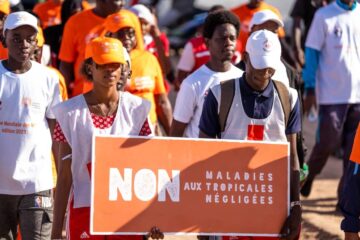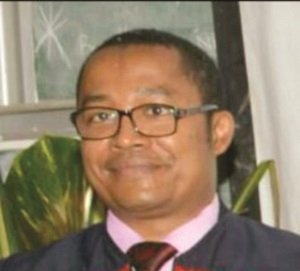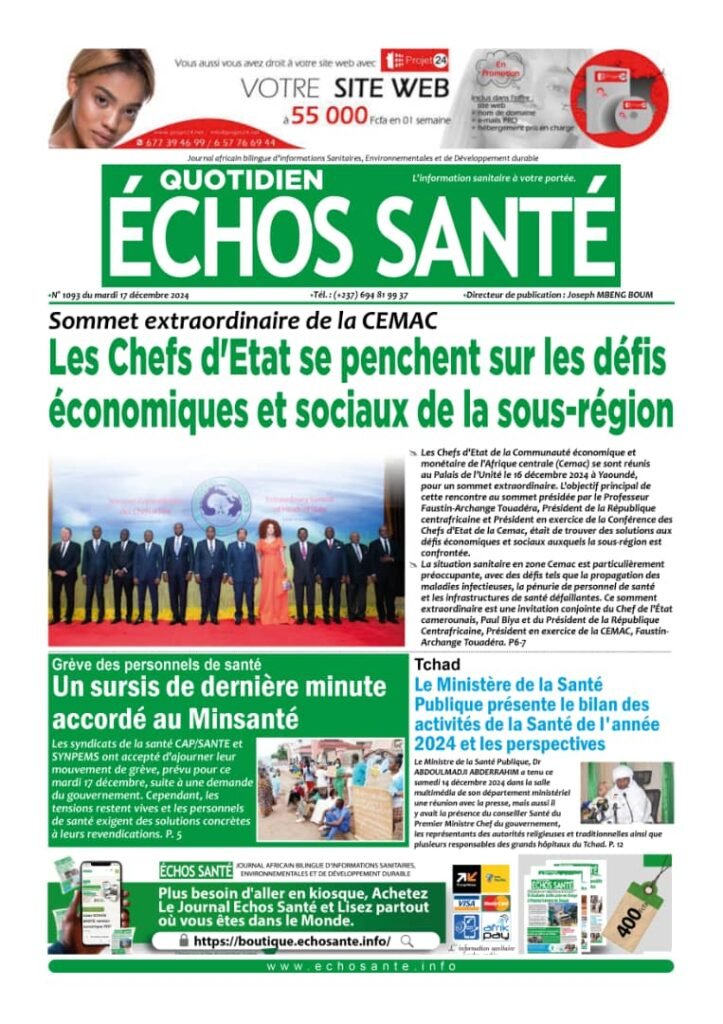
Dr. Kinge Thompson Njie, Director, Regional Hospital Bamenda
Mr. Director, how is the Regional Hospital Bamenda (Rhb) faring today?
The Regional Hospital Bamenda continues to play its role as a reference hospital in the region but with some strain since the beginning of the socio-political crisis in November, 2016. With a staff strength of 430, including 27 doctors, 207 nurses and 64 laboratory technicians, it handles about 4500 consultations per month. Of its 400 beds, 85 – 90% are occupied all the time.
We know that your hospital has suffered attacks. What happened?
We do not believe that the Regional Hospital Bamenda has been a target for violence for whatever reason since the eruption of the crisis. However, between November 2016 and now, staff of the hospital have been aggressed physically and some equipment destroyed by friends and relatives of sick persons who are impatient with the doctors and nurses. This has happened at the emergency unit especially.
What are the security measures taken to protect patients and the hospital as a whole?
Security of our patients has not been a problem yet and we do not expect that to happen. In other words, we have never noted a case of physical aggression to any of our patients, not even during this period of socio-political crisis.
To talk about security measures in the hospital as a whole, we have been working with a renowned security company in Bamenda. Beyond that, we have succeeded in sensitizing our staff to understand that security issues concern all of us. Our motto is – “See something, Say something”. It is in that spirit and understanding, that we have succeeded with the collaboration of the forces of law and order, to curb cases of theft and aggression within the hospital.
Do you think the crisis going on in your region has any impact in your performances?
Yes. The number of consultations per month has dropped and new challenges have emerged. For example, we now see many more cases of bone injuries which are now responsible for about 80% of our evacuations. The need for experts in thoracic and cardio-vascular surgery is also highlighted. Some staff are demoralized because of the tense, insecure environment characterized by ghost town days, a seemingly long-standing curfew and limited circulation even when they are ready to go to work. As a result of these difficulties, some doctors and nurses are now requesting for transfers out of Bamenda.
Finally, the workload has shifted from routine to more of emergencies with the majority of patients as poor and vulnerable. In other words, most of the patients are unable to pay for our services.
What will you say about the use of your services before and during the crisis?
Before the crisis, the Regional Hospital Bamenda was sometimes over crowded. The volume of patients has now reduced as noted in our out-patient consultation registers. Many people have left Bamenda especially the student population which has significantly reduced as we all know. Other factors could be the limited movements of patients and staff due to ghost towns and fear of safety.
What can you tell us about your technical platform?
In all hospitals, the technical platform is an area that must be renewed or revised regularly. For the Regional Hospital Bamenda, the crisis gave us an opportunity to do that over and over. We have noted that, areas of urgent improvement include orthopedic and neuro-surgery based on the kind of injuries we see and reasons for evacuating most of our patients.
Do you have a policy of keeping your staff in place?
I think a policy like that exists but needs to be reinforced. The Regional Hospital Bamenda is a government institution that obeys the rules and regulations of the civil service in Cameroon. Our hospital staff like all other civil servants is posted to one area out of 3 preliminary choices they usually indicate on recruitment documents. Conditions of transfer are public and known to all civil servants. In my opinion, these are indicators by government that civil servants should remain as long as possible in places they are posted to work. It is true that in times of crisis like the current socio-political crisis, many people working in Bamenda and especially those working in the hospital are talking of special financial motivation.
What are the main reasons of consultations in your hospital?
We continue to have a lot of malaria cases and many other patients with common medical conditions like pneumonia, diarrhea, anemia on a background of HIV and AIDS. In the surgical department, we are now seeing a lot of wounds resulting from accidents and fire arms.
Within the context of the current socio-political crisis, what are your major difficulties?
The main difficulties are related to personnel.
Limited staff especially in orthopedics
For reasons of insecurity, some want to be transferred out of Bamenda
Some personnel posted to the Regional Hospital Bamenda have not come.
Personnel transportation to hospital especially in the night
Unpaid bills by many who are poor and vulnerable.
Is the Regional Hospital Bamenda responding to the health needs of the region?
Yes, of course. I think that the Regional Hospital Bamenda, is fulfilling its mission especially that as a reference hospital, offering quality services to patients and giving pedagogic support to training institutions of health personnel. Without that, the hospital would have been the central stage of a wide spread health scandal since the socio-political crisis started two years ago.
Permit me. This interview gives me another opportunity to thank the great men and women working at the Regional Hospital Bamenda, as doctors, nurses, technicians and support staff. May God bless them all.
Interview Joseph Mbeng Boum

Dr. Kinge Thompson Njie, Director, Regional Hospital Bamenda

















